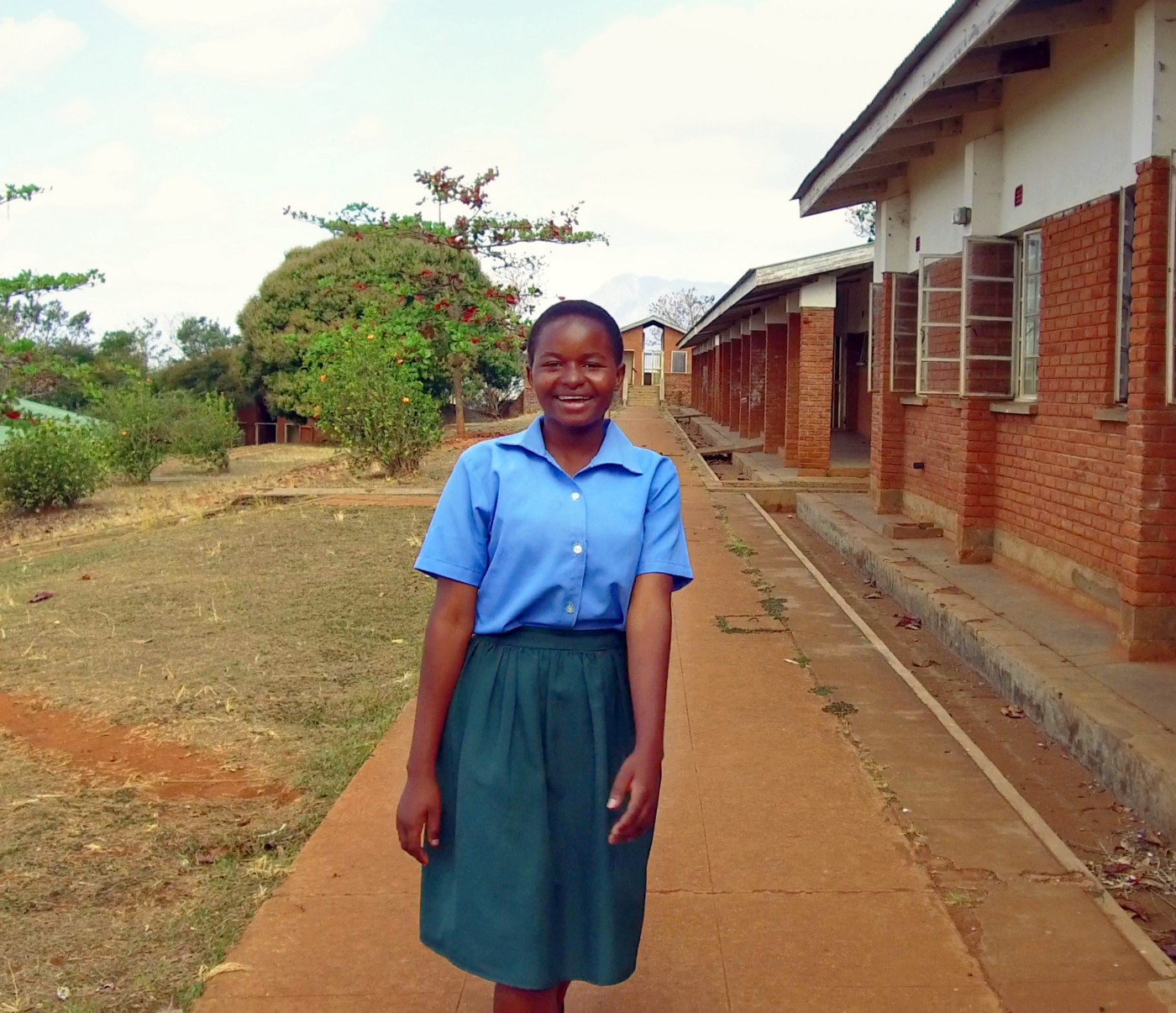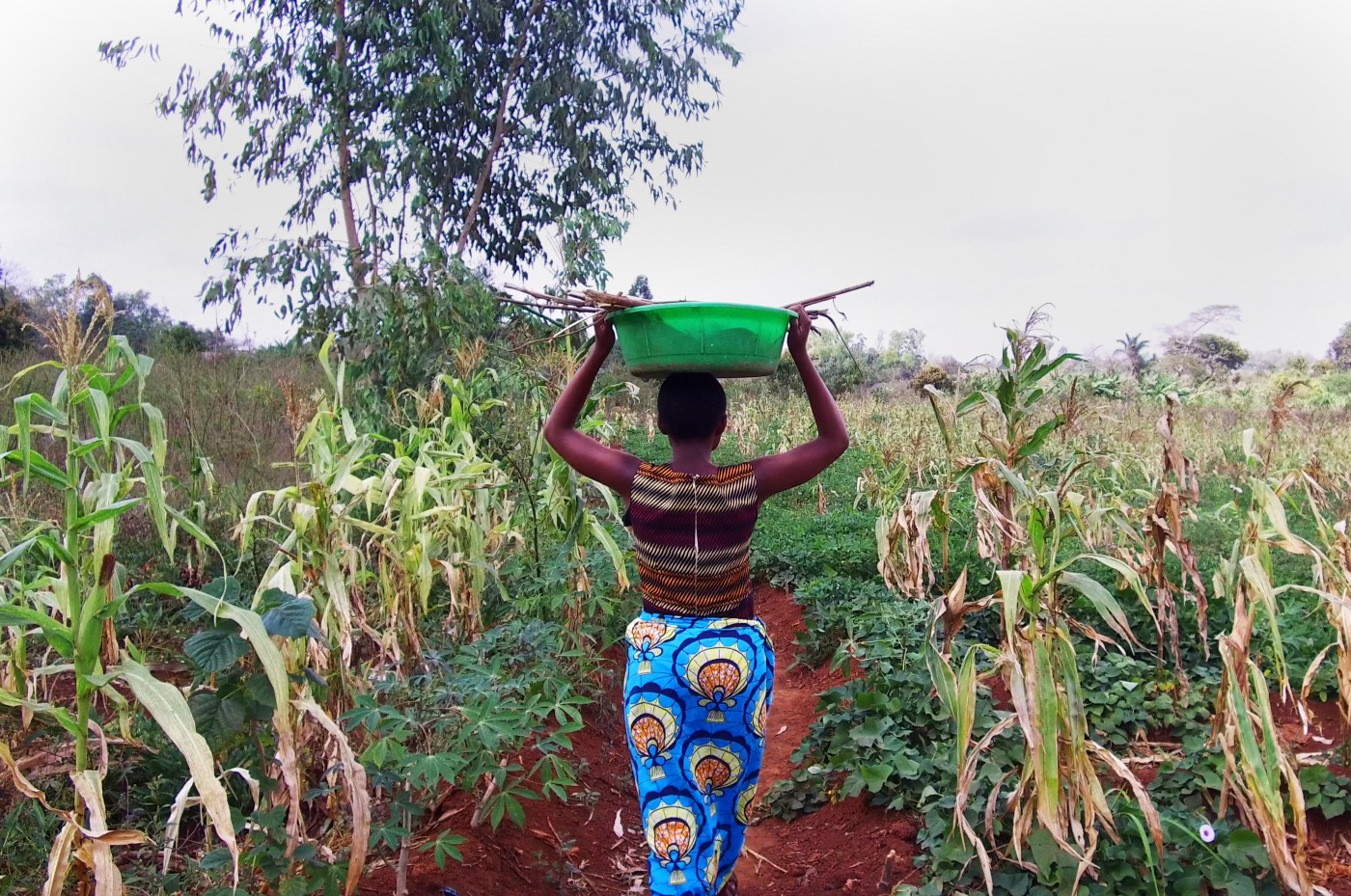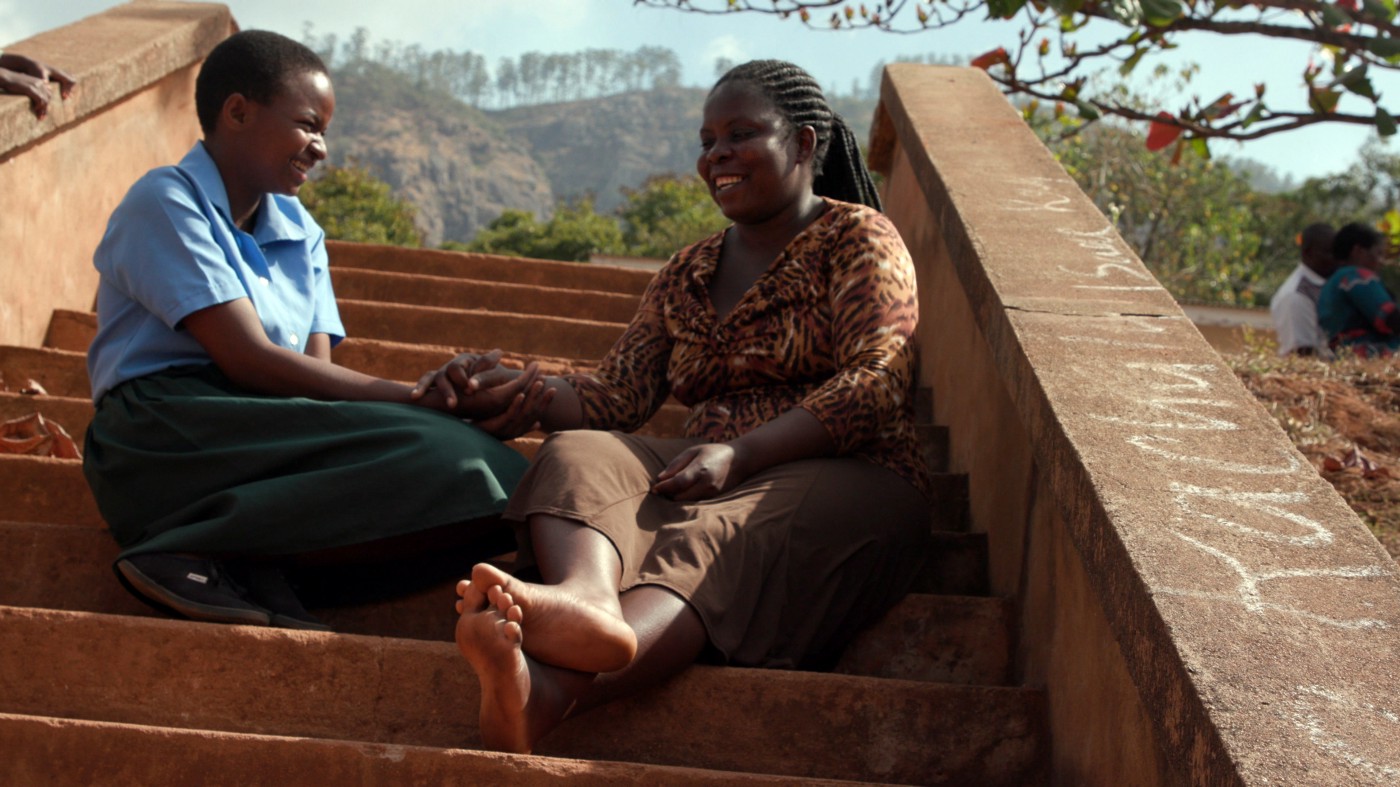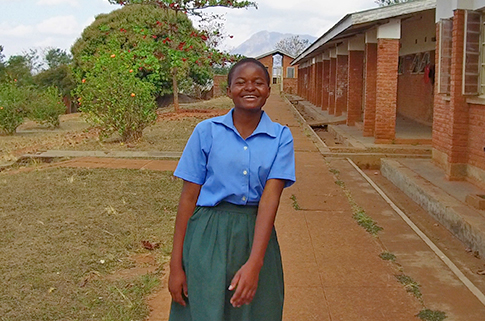By Fanny, Malawi

Fanny
With her right to education secured, and her hopes reignited, Fanny is thriving in secondary school. She says: “I’m moving forward with education. I see all the possibilities now CAMFED is supporting me.”

By Fanny, Malawi
In Malawi, where schools have been closed for more than six months for some age groups, marginalized girls in rural communities have been hardest hit by the restrictions enacted as a result of the COVID-19 pandemic. Shouldering additional domestic chores and caring duties, and with food insecurity and hunger on the increase, girls have been at even greater risk of early marriage — often seen as a last resort for families unable to provide. Fanny, a secondary student, records her story, including her experiences of this perilous time. While she waits for her classes to resume, she has regular contact and support from CAMFED staff, including the District Operations Officer, as well as the head of her school. The COVID-19 pandemic disrupted almost every aspect of Fanny’s life, but most of all her education, and the security that school offers.
My parents divorced when I was really young, and so I stay with my mum. When she became unwell, I rose to be the breadwinner. I would do some piecework [low-paying work such as laundry, washing dishes or collecting firewood] and would also find wellwishers in my community who would help me with issues like paying rent.
The biggest challenge is poverty.
The biggest challenge that I have come to realize, it’s poverty. Whatever the problems I have, they are a matter of poverty. This affects me a lot when I have to make money and seek help from other people. As I was moving on in life, I could see other examples from my community. For some girls, who were having the same problems as mine, they saw no choice but to get married. But afterwards they were meeting much bigger problems, so I realized this is not best for me.
I told myself that the best husband in the world is education!
I’ve always focused on education, because when I saw other girls facing those big problems — because they thought marriage was the best solution for them — I told myself that the best husband in the world is education! It shall support me up until the end of my days. And other people shall get hope too, because, for example, I’ve got relatives who have not had the opportunity of going to school. But as long as I’m getting an education, that means I can support them too.
In the community that I’m growing up in it’s really difficult for a girl child to get educated. So it’s my desire to prove that it’s really possible for a girl child to be educated, to change the world, and to bring development in the country.
Going to boarding school has helped me a lot. At boarding school it’s very different to a community day school, because there are more resources — it’s such an amazing place! All your focus can be on education.* I appreciate CAMFED for this amazing opportunity for me to go to a boarding school. It’s really awesome!
The first time I heard about coronavirus was the same day that the schools were closed. So it was like the door to my success was closed also. At home it’s much harder to focus on education. When I wake up, I start doing household chores, and after that I look for some piecework, like washing people’s clothes, so I can get money for that day. It’s not much more than 1000 Kwacha (USD 1.36) and that can just buy food for that day, and maybe something left so that at the end of the month we can pay rent (7000 Kwacha or USD 9.33).

Fanny walking near her home in Malawi’s Mulanje district. (Photo: Catherine Cardwell/CAMFED)
My Head Teacher has been calling me to tell me to study if I can. He is hopeful that maybe very soon we can go back to school. He told me about a conference where they were discussing how they were going to manage education. It felt really good to hear that, and it’s helping me turn to hope again. From having the way to my success and my expectations crushed, I started to feel much better, like my solution is still waiting.
My favorite subjects at school are Biology and English. I’m focusing on my passion and my future. I like English the most because I have a vision that one day I shall stand and speak internationally.
The girls are the ones who are affected most here, and once schools open I’m not sure that there will be the same number of girls going to school. They have to suffer searching for food, getting some money. Only after it’s too late are we realizing that they are pregnant, they are getting married as the solution they need now because of coronavirus.
But I can try and change the mindset people are having — I’m sure the stereotype is not only in Malawi — that a girl cannot achieve a better position. I’m going to communicate with them and prove to them that girls can do more.

Fanny talking to her CAMFED-trained Teacher Mentor, Ellen Kampango, before school closures were announced. (Photo: Catherine Cardwell/CAMFED)
I want to encourage girls not to lose hope in education, and to the other people I want to say:
If you want to develop this country, if you want to develop this world, we have to focus on education. Give girls their right of going to school!
*Fanny’s classes are due to resume on October 12, 2020. While Fanny is away at boarding school, her younger sister steps into the role of providing for the family with the support of wellwishers in the wider community, and the knowledge that she is able to turn to members of CAMFED.
Fanny’s needs were assessed and additional support provided by CAMFED and the Mastercard Foundation through its COVID-19 Recovery and Resilience Program during the crisis. She has also spoken about her experiences for an episode of the OnSpec Podcast, showing the effects of the pandemic through children’s eyes.
Fanny is not alone. There are millions of girls in need of financial and social support to secure their right to learn and lead. If you are ready to help, why not help us ignite change today?

With her right to education secured, and her hopes reignited, Fanny is thriving in secondary school. She says: “I’m moving forward with education. I see all the possibilities now CAMFED is supporting me.”

Meet Fanny from rural Malawi, who is wise beyond her years and whose positivity and leadership shine through, in spite of her struggles at home.
Anthony Cole $10.9
Heather Sheeran £57.4
Margaret Cupp $2102
Crystal Martin $47.6
Crystal Martin $117
Derwood Mamouzelos $10.9
Olivia Buell $10
Sherry Thompsen $50
Joan and Scott Barker $526
dilhara anbil $7000
Kristin Nylen $158
Michael Glanz $150
Joyce Feeney $150
Vanessa Dauterive $26.6
Aran MacKinnon $106